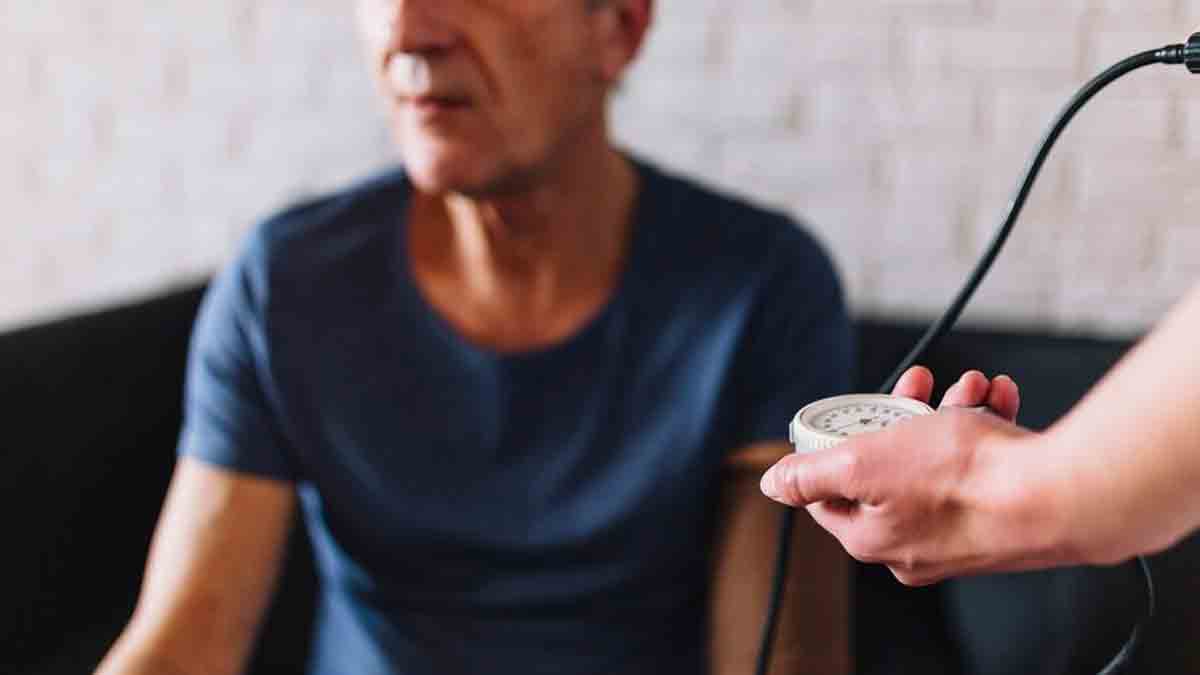
It's normal for your blood pressure to naturally rise in the morning after you wake up. This phenomenon, known as the "morning surge," is part of your body's natural rhythm. It refers to an increase in blood pressure observed in the first 2–3 hours after waking up from sleep. However, for some individuals, this rise can be more significant, leading to concerns about potential health risks. To understand why it occurs, we spoke to Dr Vinayak G P, Consultant - Internal Medicine, SPARSH Hospital, Rajarajeshwari Nagar.
Table of Content:-
Blood Pressure Spike In The Morning

“Blood pressure fluctuates over 24 hours following a circadian rhythm that reaches a peak in the morning shortly after awakening,” said Dr Vinayak.
The circadian rhythm is the body's internal clock that regulates various bodily processes, including sleep-wake cycles, hormone release, and body temperature.
Also Read: How Maintaining A Sleep Schedule Boosts Your Heart Health: Ways To Create One
According to the doctor, the morning surge in blood pressure is thought to be increased activity in the sympathetic nervous system, which controls your body's "fight-or-flight" response.
This activation leads to the release of hormones like adrenaline, which can cause your heart rate and blood pressure to rise.
Additionally, changes in blood clotting factors during this time may also contribute to the increased risk of cardiovascular events, suggesting a connection between these early-morning peaks and cardiovascular risks.
In fact, a 2008 study published in the Journal of Clinical Hypertension suggests that a morning blood pressure surge can contribute to adverse cardiovascular events, including complications such as stroke, silent cerebral infarction, myocardial infarction (MI), or heart attack.
Researchers observed an independent association between a higher morning blood pressure surge and increased risks of cardiovascular complications in elderly hypertensive patients. The incidence of MI, sudden cardiac death, and ischemic events was notably higher during the morning hours.
The Right Way To Check Blood Pressure

It is important to know that accurate blood pressure measurement is critical for the proper diagnosis and management of hypertension.
Sharing the right way to measure blood pressure, Dr Vinayak said, "Sit with your back straight and supported. Your feet should be flat on the floor, and your legs should not be crossed. Your arm should be supported on a flat surface, such as a table, with the upper arm at heart level. Make sure the bottom of the cuff is placed directly above the bend of the elbow."
He added, "It’s important to take the readings at the same time each day, such as morning and evening. It is best to take the readings daily, ideally beginning two weeks after a change in treatment and during the week before your next appointment. Each time you measure, take two readings one minute apart and record the results."
Also Read: Protein-Rich Foods That Help Reduce Your Risk Of High Blood Pressure or Hypertension
Mistakes To Avoid While Checking Blood Pressure

Some of the common mistakes people make while checking blood pressure include:
Patient-related
- Overeating
- High caffeine-intake
- Increased nicotine use
- Full bladder (can lead to an error in systolic BP)
- Seated uncomfortably
Procedure-related
- Placing the patient’s arm lower than the heart level
- When the patient’s legs are crossed at the knees
- Talking during a BP measurement.
Equipment-related
- If a cuff is too small or too large
- Using automated devices that have not been tested for accuracy
Physician- or health-professional-related
- Failure to include a five-minute rest period
- Talking during the measurement procedure
- Using an incorrect cuff size
- Failure to take multiple measurements
Conclusion
The morning rise in blood pressure, or the 'morning surge', is a natural phenomenon that occurs due to a combination of factors, including the body’s normal circadian rhythm, hormonal fluctuations, and physiological responses. It is more common in people with hypertension, those suffering from type 1 and 2 diabetes, older adults, obese people, and individuals who smoke or consume alcohol. While this rise in blood pressure supports the body's adaptation to the demands of the day, it also poses potential cardiovascular risks. Therefore, understanding the underlying causes of the rise in morning blood pressure is crucial to receiving proper treatments.
Also watch this video
How we keep this article up to date:
We work with experts and keep a close eye on the latest in health and wellness. Whenever there is a new research or helpful information, we update our articles with accurate and useful advice.
Current Version